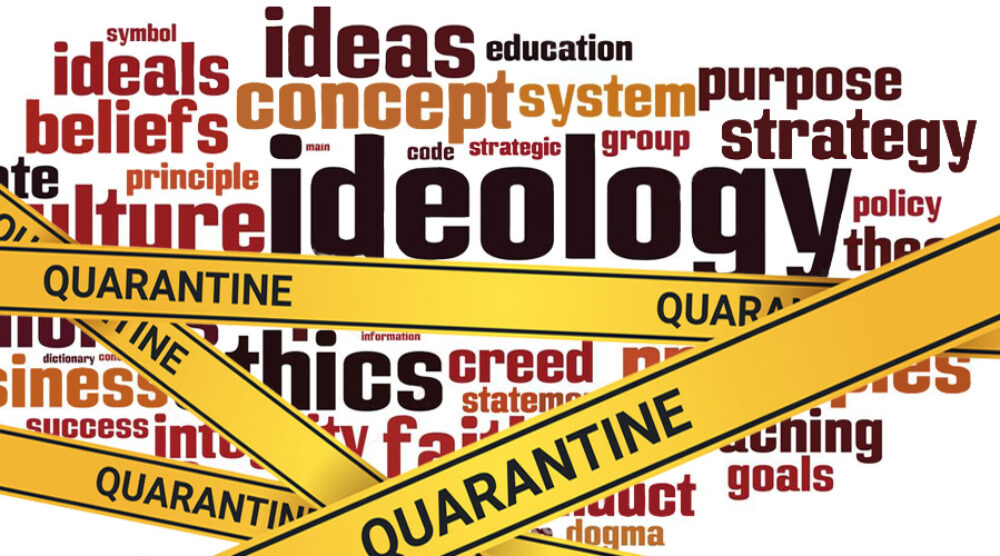One of the first casualties of COVID-19 has been largely ignored in the current crisis. Ideology has ruled the world since the end of WWII and has been almost untouchable in the last 75 years. It has played diverse roles in world events—the fundamental touchstone of the Cold war; the reason for globalisation, anti-globalisation and, even for a changing climate.
Although created by humans, it was special.
Its strength comes from being intangible and incommensurable. As such, any argument for or against any of its roles always remained undetermined, debatable and open. It was ideal.
And still, it brought about certain realities. That is, statements that produced effects as ideology drove individuals’ thinking and actions, making possible the construction of a reality that reflects the utterance that created it.
The secret of the longevity of ideologies therefore, can be explained by its composite nature—ideologies are made up from both ideas (e.g. ‘individualism’) and matters (economic success)—one supporting the other.
COVID-19 quickly brought down ideologies. Because of the imperative of physical and economic survival, most governments started to give money to individuals and private companies, to make possible the physical survival of individuals and the economic survival of companies. There was no choice. Death of ideologies was instantaneous.
This process however, evolved differently across the world. In Scandinavian countries, giving away money to individuals for their physical survival and the preservation of their economies was not a shock as their welfare state policies have been doing this (successfully) for quite some time.
In other countries, such as Australia in which neo-liberal ideologies have been strengthening in the last 20 years, ideology died suddenly. Australian government adopted a pragmatic ‘whatever it takes’ principle and provided cash to individuals and companies. No complaints from the usual suspects—Right think tanks, mainstream media, large banks and financial institutions. Conversely, they applauded the quick reaction of their government. Australia is somewhat successfully on the brink of the other side of COVID-19.
Yet, in other group of countries ideology is kicking and alive. In Brazil and to some extent in the United States, for example, ideology continues driving governments’ decisions and actions. This involves making misleading choices between health and economics. Because of efficiency reasons, health and economics were artificially separated. This is an error category one—health and economics are one thing only, made up of relationships among humans and, between humans and objects, machines, micro-organisms, rules and symbols. The same individuals that require medical attention are the ones that create value in their day-to-day jobs through the production of goods and services and, spend their income generating what we call markets. Then, countries in which ideology is alive, are attempting to save the economy leaving in second place the health of individuals that create economic value, endangering, simultaneously, peoples lives and the survival of the economy.
Whether ideology is dead or alive the future will tell. At this crossroad of history it is only possible to speculate. As human beings need ideologies to live meaningfully, it is likely societies will develop new forms and types of ideology to sustain their political projects. Marginalised ones like ‘buying local’, or ‘virtual connections’ are now gaining momentum as they are aligned to health advice (isolation) and, simultaneously, support the creation of local jobs, consumers and services. Construction of new ideologies though, will depend on the ongoing pragmatic actions of governments and their citizens since ideologies and matters are the outcome, rather than the departing point of social actions. This is about how humans choose to associate with fellow humans and nonhumans (e.g. products, food, machines, viruses, environment) to construct both a feasible and resilient new economic system and, new ideologies to sustain it.
Dr Gustavo Guzman is a Senior Lecturer in the Department of Business Strategy and Innovation.




